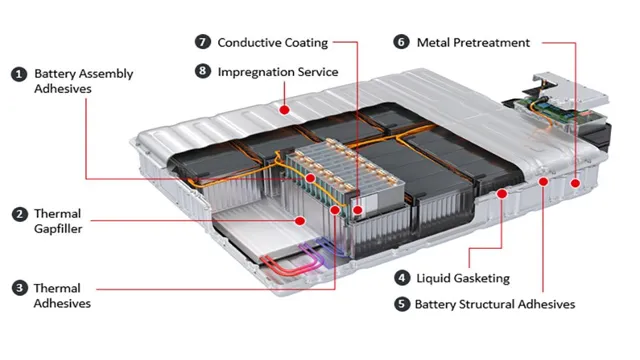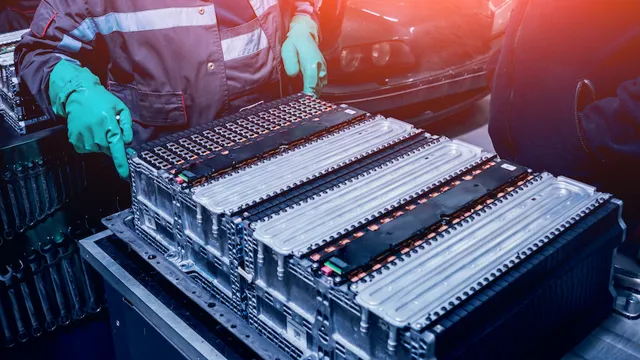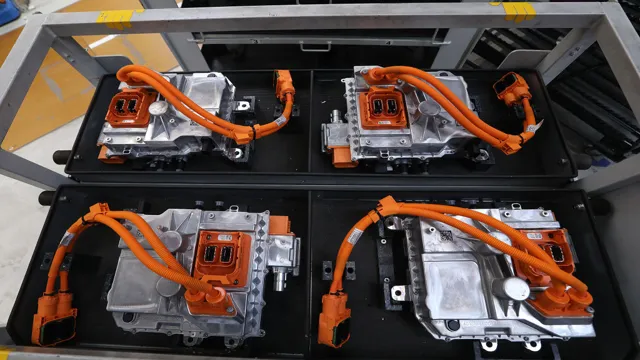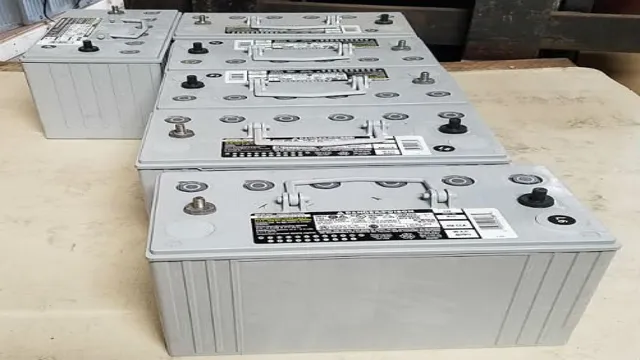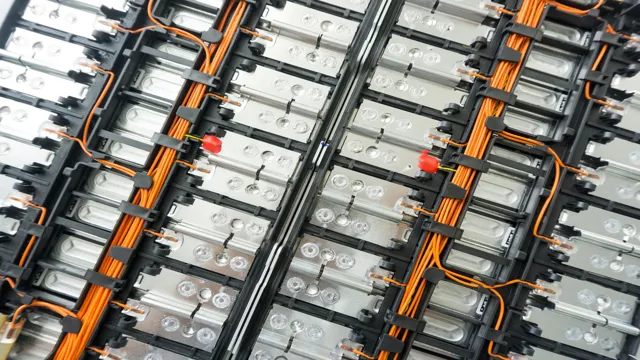The Shocking Truth Behind the Composition of Electric Car Batteries
Electric cars have become increasingly popular in recent years due to their eco-friendliness and affordable operating costs. However, to get the most out of these vehicles, it’s crucial to understand the basics of their batteries. The battery is the heart of an electric car, and it’s essential to know how it works to make an informed decision about using and owning an electric car.
Unlike traditional cars that use gasoline, electric cars rely entirely on batteries to power their engines. These batteries store the energy that drives the motor, which, in turn, drives the wheels. The most common type of battery used in electric cars is called a Lithium-ion battery.
They are lightweight, rechargeable, and have high energy density, making them perfect for electric vehicles. The size and capacity of the battery vary depending on the make and model of the car. The battery capacity is measured in kilowatts per hour, with most electric cars having a capacity of between 40 and 100 kWh.
The higher the capacity, the longer the driving range of the car will be – typically between 100 and 300 miles on a single charge. As an electric car owner, it’s essential to understand how to maintain your battery so that it stays in good condition for as long as possible. Over time, the battery’s capacity can decrease due to natural wear and usage, similar to how a smartphone battery degrades after years of use.
However, proper maintenance, such as not fully discharging the battery and keeping it cool, can help prolong its life. Overall, understanding the basics of electric car batteries is essential for anyone interested in owning or using an electric car. By maintaining the battery correctly and optimizing its usage, you can enjoy the full benefits of electric cars while reducing your carbon footprint.
What are Electric Car Batteries Made Of?
The composition of an electric car battery is one of the most crucial factors in determining the efficiency and usability of an electric vehicle. Electric car batteries are generally made up of various types of lithium-ion cells, which are relatively small and lightweight. These cells are held together in a structure called a battery pack, which is responsible for storing and releasing energy as required.
The cells themselves are comprised of thin layers of metal foils that are coated with various kinds of chemicals, such as lithium cobalt oxide or lithium iron phosphate. These chemicals interact with the electrodes in the cell to provide a stable, long-term source of energy. The composition of the battery pack can vary depending on the make and model of the electric vehicle, with some using more cells than others to provide higher levels of power and range.
Overall, the composition of an electric car battery is one of the key factors that determine the success and adoption of electric vehicles, as it directly affects their range, performance, and efficiency.
Lithium-Ion Batteries
Lithium-ion batteries are the life source of electric cars. This type of battery is made up of a positive electrode, which is made of a lithium compound and a negative electrode, which is made of carbon. When lithium-ion batteries discharge, the lithium ions move from the positive electrode, through the electrolyte, to the negative electrode and back again when they recharge.
The electrolyte is a solution that allows lithium ions to flow between the electrodes. This process creates an electric current that powers the motor of the electric car. Of course, these are highly specialized batteries that require specific metals, such as cobalt and nickel, to function.
The production of these batteries can be quite complex and expensive; however, these batteries are incredibly efficient and environmentally friendly compared to gasoline engines. As technology continues to develop, lithium-ion batteries are becoming cheaper, lighter, and more powerful, making them an incredibly promising option for powering the vehicles of the future.
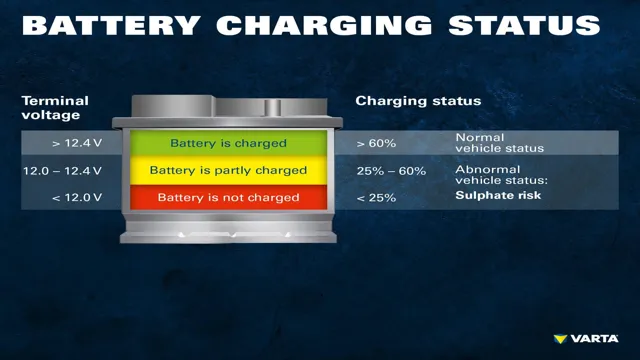
Nickel-Metal Hydride Batteries
When it comes to electric car batteries, many different types are used depending on the vehicle and manufacturer. One common type of battery is the nickel-metal hydride (NiMH) battery. These batteries are similar to the nickel-cadmium batteries that were commonly used in the past, but they are much more environmentally-friendly.
NiMH batteries utilize a chemical reaction between nickel oxyhydroxide and metal hydride to generate electricity. They are rechargeable and can hold a relatively high amount of energy for their size and weight. While they are not as efficient as some other types of batteries, NiMH batteries are still commonly used in hybrid and electric cars because they are more affordable than other options.
Additionally, they can be recycled, which is a major plus for environmentally-conscious drivers.
How Do Electric Car Batteries Work?
Electric car batteries are made up of a variety of materials, mainly lithium-ion cells that work together to store and discharge energy. These batteries consist of several components, including electrodes made of graphite and lithium cobalt oxide, a separator, and an electrolyte. The electrolyte serves as a medium between the two electrodes while the separator keeps them from touching and causing a short circuit.
When the battery is charged, lithium ions move from the cathode to the anode through the electrolyte. During discharge, the process is reversed, and the lithium ions move back to the cathode, producing electricity that powers the vehicle. The composition of electric car batteries varies depending on the manufacturer, with some companies opting for different metals and materials to improve battery performance and lifespan.
However, regardless of the components used, electric car batteries are designed to provide reliable and efficient power for the vehicle’s motor.
Electricity Generation through Chemical Reactions
Electric car batteries are one of the key components that make electric vehicles eco-friendly and efficient. The battery works by storing chemical energy and converting it into electrical energy. The most common type of electric car battery is a lithium-ion battery because of its high energy density and low maintenance requirements.
Each battery consists of multiple cells that contain a positive electrode, a negative electrode, and an electrolyte. When the battery is being charged, the positive electrode releases lithium ions, and they move through the electrolyte and get absorbed by the negative electrode. During discharge, the process is reversed, and the lithium ions move from the negative electrode to the positive electrode, generating a flow of electrons and releasing energy.
The battery pack is usually connected to an electric motor, which uses the energy to power the wheels of the vehicle. The battery management system controls the entire process and ensures that each cell is charged and discharged at the right rate to prolong battery life. With technological advancements, electric car batteries have improved significantly in recent years, providing longer ranges, faster charging times, and better overall performance.
Electricity Flow through Battery Parts
Electric car batteries are a complex system of interconnected parts that work together to store and release electrical energy. These batteries consist of several major components, including the cathode, anode, electrolyte, and separator. The cathode and anode are the positive and negative electrodes of the battery, while the electrolyte and separator serve to connect and separate the electrodes.
When the battery is charged, an electrical current flows from the cathode to the anode, causing the lithium ions in the cathode to migrate to the anode. During discharge, the process is reversed, with the lithium ions returning from the anode to the cathode, creating a flow of electrical energy. Overall, electric car batteries operate by converting chemical energy into electrical energy, allowing electric vehicles to run on a clean and renewable power source.
Electricity Conversion into AC for Vehicle Motors
Electric Car Batteries Have you ever wondered how electric car batteries work? Unlike traditional gasoline-powered vehicles, electric cars run on batteries that store electricity to power the car’s motor. The batteries in electric cars are rechargeable and typically made from lithium-ion. When the car is plugged in, the battery pack is charged by converting electricity from AC (alternating current) to DC (direct current).
Once the battery is fully charged, the car can use the stored electricity to power the motor and propel the vehicle forward. When the batteries start to run low, the car’s onboard computer system will send notifications to the driver to recharge the battery. Charging times vary depending on the battery size and the level of charge the battery needs.
Some electric cars may require several hours to fully charge while others can provide a fast-charging option that can recharge the battery within an hour. The use of electric car batteries is an environmentally friendly option that can reduce greenhouse gas emissions and create a cleaner, greener future for transportation.
Benefits of Electric Car Batteries
The composition of an electric car battery is what makes it revolutionary. Instead of the traditional lead-acid batteries, electric car batteries are made up of lithium-ion cells. These cells are composed of a combination of chemicals that allow for the efficient storage and release of electrical energy.
One major benefit of these batteries is their high energy density, meaning they can store more energy while taking up less space and weight compared to traditional batteries. Another advantage is their rechargeability, allowing for the car to be charged at home using a regular socket or at charging stations. The composition of these batteries also has an impact on the environment, producing fewer emissions during the charging and discharging process.
As the technology continues to improve, we can expect even more benefits from electric car batteries, making them an increasingly attractive choice for individuals and the environment alike.
Reduced Emissions and Environmental Impact
Electric car batteries are a key component in reducing emissions and environmental impact. One of the major benefits of these batteries is their ability to store energy from renewable sources such as wind or solar. As such, electric vehicles can be powered without relying on fossil fuels, which release harmful greenhouse gases into the atmosphere.
Additionally, electric car batteries can be recycled, reducing the amount of waste and further minimizing their environmental impact. With their impressive energy efficiency and reduced emissions, electric car batteries are leading the way in creating a more sustainable future. So why not make the switch to an electric vehicle today? Not only will you be making a positive impact on the environment, but you’ll also take a step towards a cleaner and healthier future for all.
Energy Efficiency and Cost Savings
Electric car batteries offer numerous benefits that range from environmental impact to cost savings. One of the most prominent benefits of electric car batteries is their energy efficiency. Unlike traditional combustion engines, electric car batteries convert a larger percentage of energy from the charging source into power for the motor.
This means that less energy is wasted, resulting in a more cost-effective and sustainable solution in the long run. Additionally, the use of electric car batteries also reduces the overall carbon footprint, making it a more eco-friendly choice. The initial investment in an electric car battery may be higher than traditional vehicles, but the savings in fuel costs and maintenance expenses can quickly add up over time.
By opting for an electric car battery, drivers can save a significant amount of money while also contributing to a cleaner and healthier environment.
Future of Electric Car Batteries
The composition of electric car batteries is constantly evolving as researchers and manufacturers aim to create more efficient and cost-effective options for consumers. Current electric car batteries typically use a combination of lithium, cobalt, nickel, and manganese. However, some companies are looking into alternatives to cobalt, as it is expensive and often mined in unethical ways.
One potential replacement is nickel-manganese-cobalt (NMC) batteries, which offer improved energy density, longer lifespan, and reduced costs. Another alternative is lithium-iron-phosphate (LFP) batteries, which are more stable and less prone to overheating, making them safer for use in electric vehicles. As advancements continue to be made in battery technology, it is likely that we will see more sustainable and affordable options being developed, making electric cars a more accessible option for consumers around the world.
Conclusion
In conclusion, an electric car battery is a true marvel of modern engineering. It’s a exquisite composition of advanced technologies and materials that work together to power the vehicle silently and sustainably. The combination of high-energy density lithium-ion cells, sophisticated battery management systems, and cutting-edge charging infrastructure makes for a greener, more efficient, and more enjoyable driving experience.
So next time you see an electric car cruising past you, remember that it’s not just eco-friendly, but also a product of human ingenuity and creativity. Electric cars are indeed paving the way towards a brighter, cleaner, and more electrifying future!”
FAQs
What is the composition of an electric car battery?
Electric car batteries are typically made up of lithium-ion cells, which consist of a cathode, anode, and electrolyte.
Are there any other materials used in the composition of electric car batteries?
Yes, electric car batteries may also contain small amounts of cobalt, nickel, manganese, and graphite.
How does the composition of an electric car battery affect its performance?
The specific composition of an electric car battery can impact its energy density, power density, charging time, and overall lifespan.
Can the composition of an electric car battery be customized to meet specific performance needs?
Yes, manufacturers may adjust the composition of electric car batteries to optimize for different priorities, such as range, acceleration, or cost.
